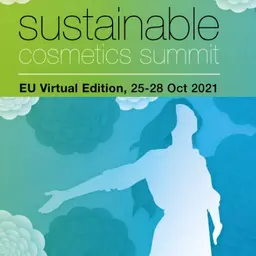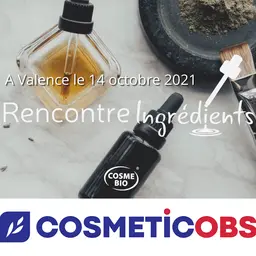
For a long time, organic cosmetics has been protected from the climate of mistrust that has developed among consumers regarding the safety of cosmetic ingredients. This is no longer the case today, far from it. Nanoparticles, titanium dioxide, sulphated surfactants, preservatives… are on the spot like petrochemical or synthetic ingredients. And this even though the sector still lacks some essential raw materials to fully compete with conventional cosmetics. It is to address this issue, and try to find solutions, that Cosmébio organized an Ingredients Meeting on October 8, 2019.
The day began with a round table discussion that provided an overview of the issues that currently affect the ingredients used in natural and organic cosmetics, particularly in the context of the COSMOS reference framework. Introduced by Justine Gagna-Olijnyk, Technical Manager of Cosmébio, it gave the floor to three speakers, a distributor, a brand and an ingredient supplier: Emmanuelle Joye, Head of Ingredients and Specifications R&D at Biocoop, Aurore Kolly, Scientific Director of Phytema Laboratories, and Pierre Charlier de Chily, President of Aldivia and Vice-President of Cosmébio.
The new natural environment
Justine Gagna-Olijnyka began by recalling some figures illustrating the growth of the natural and organic cosmetics market. In 2018, it was 7.2% in Europe and 18.7% in France.
It is therefore a market that is doing rather well, and which reflects a real interest on the part of consumers, as well as the quality of the product offer.
Natural ingredients on the spot
But products also mean ingredients, and it is obvious today that some are associated with strong issues.
• Sunscreens
In organic, only two are authorized (all the others listed in Annex VI to the Cosmetics Regulation being chemical), titanium dioxide and zinc oxide. However, titanium dioxide …













